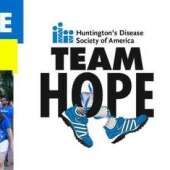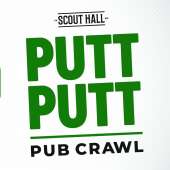A recent data brief from the Centers for Disease Control and Prevention reveals that almost 50 percent of Americans take at least one prescription drug per month.
"Many of us keep multiple medications, both prescription and over-the-counter, in the house," says JeQuithia Sims, pharmacy technician program chair at Everest College in Arlington, Texas. "But when stored or consumed incorrectly, medication can cause unexpected consequences."
Follow these guidelines for medication safety:
Storing your medication
* Store in a cool, dry place. While it varies by manufacturer, this rule stands true for most medications. You should also keep your medications away from light, which can degrade medication more quickly than intended.
Jennifer McCoy, pharmacist at MediCenter Pharmacy in Cape Girardeau, advises against storing medications in the bathroom, where they may be affected by heat and humidity from the shower.
Never stash your medications in the car, adds Kevin Wood, pharmacist and co-owner of Broadway Prescription Shop in Cape Girardeau. Extreme hot or cold temperatures can make your medicines work more than they should or not as much -- either way, they won't be as effective for their intended purpose.
* Keep away from children. If you have children or grandchildren, be sure to keep medications up high and out of reach, maybe even locked up.
"If you have grandchildren around, even small children can open up safety-proof caps," McCoy notes.
* Honor the expiration date. Whether it's an over-the-counter or prescription medication, old pills degrade over time and can cause a bacteria imbalance when consumed. Most medication expires after one year, so use this as a rule of thumb when revisiting old pills. Before picking up that 500-count bottle of pain reliever because it's a "better deal," ask yourself if your household will consume all 500 pills that year. If not, it might be safer to grab the smaller bottle and restock yearly.
* Dispose of medications properly. When disposing of expired, discolored or unused prescription medications, be mindful of proper disposal practices by throwing medications away through your community's medication disposal program. The police departments in Cape Girardeau and Jackson both have secure drop-boxes for old medications.
Be especially careful with patch medications with Fentanyl, which McCoy says are extremely toxic to children who may find the patches in the trash and eat them -- flushing these patches is OK.
Do not flush other medications or pour them down the drain -- this harms the environment, as sewage systems are not capable of removing medicines from the water released into lakes, rivers and oceans.
If you can't make it out to the drop-boxes, Wood, along with the FDA, recommends mixing old medications with something unappealing, like used coffee grounds or kitty litter, before dumping them in the trash. However, Darin Hickey, public information officer with the Cape Girardeau Police Department, says drop-boxes are still the safest way to dispose of medications.
"Anything someone does to discourage someone getting their pills is a good thing, but permanent disposal is the best," he says. "We think the best way is to turn them in to the drop-boxes or give them to an appropriate person for disposal. If someone really wants them, they may go to extreme circumstances to try and get them."
Using your medication
* Note the warning label. Even if you've taken the medication for years, it's always a good idea to look at the warning label for consumption directions, as your doctor may have altered your dosage or the manufacturer slightly changed the consumption directions.
* Know what's what. Wood encourages patients to use day-of-the-week pill boxes to organize medications and remember whether you've taken them. Broadway Prescription Shop also offers a Personal Pack option, where pharmacists sort all your medications and package them into individual bubbles organized by day and time.
"You don't have to worry about taking the wrong thing or taking it at the wrong time of day, or forgetting them," says Wood. "When you get on several things, it's hard to keep track of it all." Bubble packs are also available at MediCenter.
* Consuming liquids is not the same as consuming water. If the label instructs you to consume with water, be careful not to consume with other beverages. Juices and acidic drinks can cause the medication to break down faster than normal and hot drinks, such as coffee or tea, cause coated pills to melt too quickly in the stomach -- not the intestine, where it's intended to break down. This may produce side effects such as stomach ulcers.
* Don't lose the dropper. It might seem the same to use a household spoon with liquid medication, but the dropper or spoon provided by the pharmacy has been measured specifically for your intended dosage. Research shows that silverware teaspoons can vary from 1 to 9 milliliters dependent upon design, making them an unreliable tool for medication.
* Make friends with your pharmacist, and don't forget he or she is an expert. Both Broadway Prescription Shop and MediCenter have pharmacists available daily to go over your medications, discuss side effects, check expiration dates and make sure you're taking them correctly. This can be done in person or over the phone.
"Pharmacists are here for patients to come in and discuss their medications and make sure there are no interactions and that they're taking them safely," says McCoy.
Tips for kids
* Children are not small adults. If a medication is intended for adult consumption only, keep in mind it cannot simply be given to children in smaller doses. Instead, seek a medication specifically designed for children.
* Medicine is not candy. Although referring to medicine as "candy" around children might be a tempting tactic to entice them to take it, be wary of what might happen when you're not around. Children can easily get ahold of medication, consume large amounts and overdose.
BrandPoint contributed to this report.
Prescription Drug Take-Back event is April 26
Not sure how to dispose of your old or unused medications? Bring them to National Prescription Drug Take Back Day on Saturday, April 26. From 10 a.m. to 2 p.m., local police officers will collect unwanted medications in the West Park Mall parking lot near Steak 'N' Shake in Cape Girardeau or at the Jackson Police and Fire Station. (Spray mists and needles cannot be accepted.) If you can't make it to this event, remember there are two permanent prescription drug drop-boxes in Cape Girardeau County: One at the Cape Girardeau Police Department and one at the Jackson Police Department. For more information about drug disposal, call EPIC (Early Prevention Impacts Community) at 573-587-1921 or visit www.epicprevention.org.
 Local News 4/19/24Inside Becca’s Closet: A mission to dress teens for formal eventsThe organization Becca’s Closet, which helps young girls get access to formal dresses for dances and proms, is celebrating its 20th anniversary this year. Cape Girardeau is the home to one of two Missouri chapters, and one of 51 in the U.S...
Local News 4/19/24Inside Becca’s Closet: A mission to dress teens for formal eventsThe organization Becca’s Closet, which helps young girls get access to formal dresses for dances and proms, is celebrating its 20th anniversary this year. Cape Girardeau is the home to one of two Missouri chapters, and one of 51 in the U.S... Local News 4/19/24Southeast Missouri State University's symphony conductor Sara Edgerton to retire1Sara Edgerton, professor of cello and string bass and artistic director and conductor of the Southeast Missouri Symphony Orchestra at Southeast Missouri State University, is set to retire after 33 years...
Local News 4/19/24Southeast Missouri State University's symphony conductor Sara Edgerton to retire1Sara Edgerton, professor of cello and string bass and artistic director and conductor of the Southeast Missouri Symphony Orchestra at Southeast Missouri State University, is set to retire after 33 years...






 Local News 4/18/24Catholic Charities to hold ribbon-cutting for LifeHouse grand openingLifeHouse Crisis Maternity Home will provide education and support to pregnant women and new mothers at risk of homelessness. After 15 months of construction, the first resident will move in at the end of April. ...
Local News 4/18/24Catholic Charities to hold ribbon-cutting for LifeHouse grand openingLifeHouse Crisis Maternity Home will provide education and support to pregnant women and new mothers at risk of homelessness. After 15 months of construction, the first resident will move in at the end of April. ... Local News 4/18/24Tenmile looks to add balcony to old Esquire Theater building2Cape Girardeau City Council approved a license and indemnity agreement with Tenmile Holdings LLC on Monday, April 15, for the installation of a marquee sign and awning with column posts for the old Esquire Theater building. ...
Local News 4/18/24Tenmile looks to add balcony to old Esquire Theater building2Cape Girardeau City Council approved a license and indemnity agreement with Tenmile Holdings LLC on Monday, April 15, for the installation of a marquee sign and awning with column posts for the old Esquire Theater building. ... Local News 4/18/24SEMO Orchestra to perform Elgar, Dvorak next week at River CampusThe Southeast Missouri State University Orchestra and guest cellist Julian Schwarz will present a two-piece program Tuesday, April 23, at the River Campus in Cape Girardeau. The concert will begin at 7:30 p.m. in Bedell Performance Hall, 518 S....
Local News 4/18/24SEMO Orchestra to perform Elgar, Dvorak next week at River CampusThe Southeast Missouri State University Orchestra and guest cellist Julian Schwarz will present a two-piece program Tuesday, April 23, at the River Campus in Cape Girardeau. The concert will begin at 7:30 p.m. in Bedell Performance Hall, 518 S.... Local News 4/18/24Police: Bollinger County woman told elaborate lies across multiple investigations, including sexual assault4BOLLINGER COUNTY — Police say a Bollinger County woman told several elaborate lies during sexual assault and harassment investigations in a complex and escalating scheme that targeted the mother of her fiance’s child. Michelle D. Kaempfer of Glen...
Local News 4/18/24Police: Bollinger County woman told elaborate lies across multiple investigations, including sexual assault4BOLLINGER COUNTY — Police say a Bollinger County woman told several elaborate lies during sexual assault and harassment investigations in a complex and escalating scheme that targeted the mother of her fiance’s child. Michelle D. Kaempfer of Glen... Local News 4/18/24Jackson police, DEA host National Prescription Drug Take Back Day1The Jackson Police Department and Drug Enforcement Administration (DEA) will team up to host DEA’s National Prescription Drug Take Back Day on Saturday, April 27. The two organizations will collect different forms of prescription drugs. The...
Local News 4/18/24Jackson police, DEA host National Prescription Drug Take Back Day1The Jackson Police Department and Drug Enforcement Administration (DEA) will team up to host DEA’s National Prescription Drug Take Back Day on Saturday, April 27. The two organizations will collect different forms of prescription drugs. The...













 Most read 4/12/24Notre Dame to transition to president/principal model beginning July 17Notre Dame Regional High School announced Monday, April 8, that it will be transitioning to a president/principal model Monday, July 1. Current principal Tim Garner will assume the role of president, while assistant principal Paul Unterreiner will...
Most read 4/12/24Notre Dame to transition to president/principal model beginning July 17Notre Dame Regional High School announced Monday, April 8, that it will be transitioning to a president/principal model Monday, July 1. Current principal Tim Garner will assume the role of president, while assistant principal Paul Unterreiner will... Most read 4/12/24Coroner still hasn't found attorney as Missouri AG seeks to remove him from office13More than two months after the Missouri Attorney General's Office filed court action to remove Cape Girardeau County Coroner Wavis Jordan from office, the local officeholder has still not found an attorney to help him fight to keep his job. Wavis...
Most read 4/12/24Coroner still hasn't found attorney as Missouri AG seeks to remove him from office13More than two months after the Missouri Attorney General's Office filed court action to remove Cape Girardeau County Coroner Wavis Jordan from office, the local officeholder has still not found an attorney to help him fight to keep his job. Wavis...


